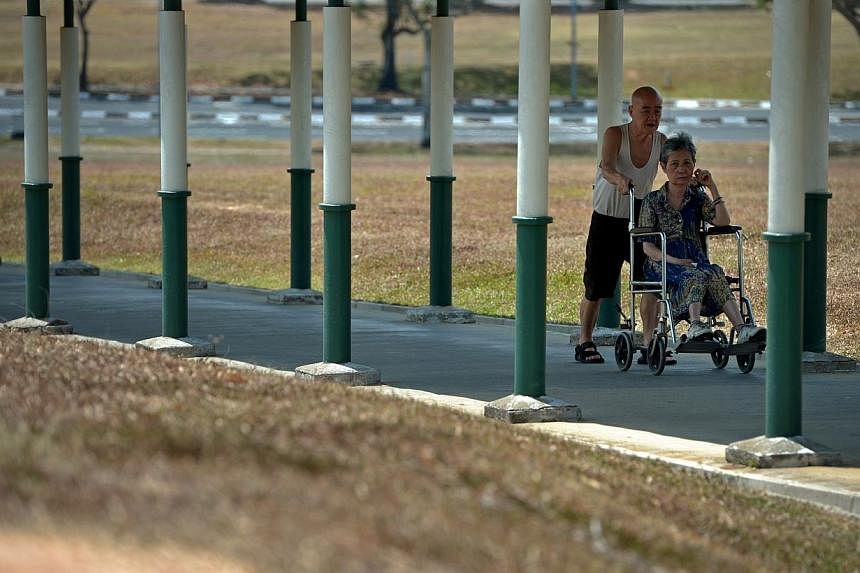SINGAPORE - Madam Junaidah Salleh, 48, who suffers from joint aches, used to have to take her 97-year-old wheelchair-bound father to the Toa Payoh Polyclinic, a trip that required them to board two different buses each way.
But now, there is a small satellite clinic run by the Tsao Foundation, at a nearby block. The clinic that's open twice a week is part of Whampoa's City For All Ages (CFAA) initiative.
The CFAA, which gives estates $50,000 to kick-start their efforts, aims to make Singapore a country that is elderly-friendly.
Launched in four estates in 2011, and since then expanded to 12 more, it looks at what residents in different estates need to make it easier for them to go out and about in the community.
Whampoa enlisted the help of Tsao Foundation to start the clinic for patients with complex medical problems. They currently have 20 patients, and will be extending it to 200 in the coming months.
The clinic ties up with Toa Payoh Polyclinic which supplies the medication the patients need at the normal subsidised rates. Prescriptions are faxed to the polyclinic which packs them, to be collected the following day for distribution to the patients.
Patients can use their Pioneer Generation or CHAS cards for government subsidies.
Madam Junaidah said having the nearby clinic takes a weight off her mind, as it was extremely difficult to get her father, who suffers from diabetes and hypertension, to the polyclinic in his wheelchair, as she cannot afford to take a taxi.
Dr Amy Khor, Senior Minister of State for Health and Manpower on Sunday launched a guidebook at Whampoa to share success stories from the 16 estates and help them to go about doing it for their own estate.
Because places and needs differ, estates need to find out first what their seniors want. But there are some common needs that can be escalated into national schemes, she said, such as the anti-slip floors and grab bars in Housing Board flats - pioneered by Marine Parade and now provided by the HDB to all housing estate flats with seniors living in them.

